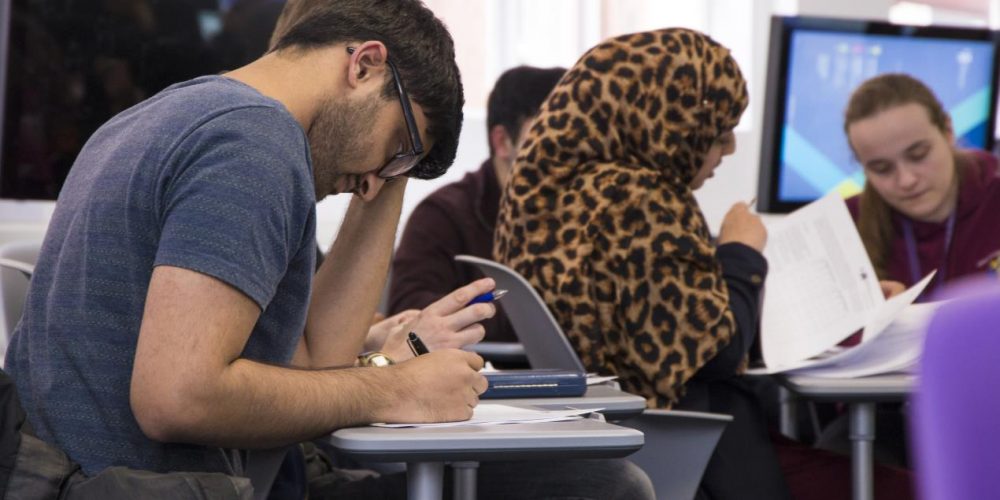 |
     |
|
The University of Wolverhampton has shown it has the right prescription for inclusivity after ranking third in the UK for BAME attainment gaps in its School of Pharmacy.
Latest figures from Universities UK have shown that there is a still an attainment gap of 13% nationally between the proportion of white students achieving a higher (first or 2.1 classification degree and their black, Asian and minority ethnic (BAME) counterparts. The Office for Students (OfS) has tasked universities with eliminating these gaps by 2025. Leading trade magazine, The Pharmaceutical Journal recently evaluated data provided by the Higher Education Statistics Agency (HESA) and highlights the University’s third place position among UK Schools of Pharmacy in its awarding gap table. The University of Wolverhampton shows a negative awarding gap of -2% which means that BAME students are attaining First and 2.1 Master’s of Pharmacy (MPharm) degrees at approximately the same rate as white students – one of only five Schools in the country with a negative or zero awarding gap figure. Dr Colin Brown, Head of the Wolverhampton School of Pharmacy, said: “We are really proud of our longstanding tradition of positive action in the recruitment of, support for, and development of students and staff who represent all groups within society. “Our students predominately come from the local area and many arrive with disadvantages which we need to address early on. Our students undertake lots of small group enquiry based learning and they benefit from a lot of study and pastoral support. “The MPharm course, in particular, provides considerable support for students in their transition from further to higher education. We recognise the needs and challenges faced by all of our students and we use teaching methods which breakdown barriers, promote inclusivity and develop the skills and attributes needed for success. “Equivalence in professional and assessment standards among UK pharmacy courses is assured by both accreditation with the regulatory body (the General Pharmaceutical Council) and an external examiner system, however, what differs between courses in higher education is how they are taught, and the level of support provided to students.” Lanna Zouabi, a second year MPharm student, said: “The course itself is brilliant. There is so much to do, so many people to talk to and learn from, especially the support given by the staff to improve your studies – they are always so open and friendly. “I have been planning my future since I was young and I’d like to work in a pharmaceutical company, taking their products around the world, combining the two things I love together – pharmacy and travelling.” The University of Wolverhampton has invested £1/2 million in interactive teaching spaces offering Pharmacy students flexible learning. First, second and third year students studying on the MPharm course have benefited from the £250,000 Team Based Learning facilities at the University’s City Campus in Wolverhampton. The structured classroom space is equipped with touch screen technology and mobile classroom seating – all designed to create a collaborative and flexible learning environment and encourage student teamwork. The University has also invested £250,000 in a new Pharmacy Practice Suite to support clinical aspects of the course. More information about the MPharm course, including its integrated structure, the use of enquiry-based teaching and learning methods and the emphasis on skills and placement experience, can be found on the website. Alternatively call us on the Clearing Hotline on 01902 518585 or contact us through our Social Media channels: Twitter, Facebook and Instagram. For more information contact the Corporate Communications Team 01902 322736/518647 or out of office hours on 07973 335112 or email: comms@wlv.ac.uk. |
|












